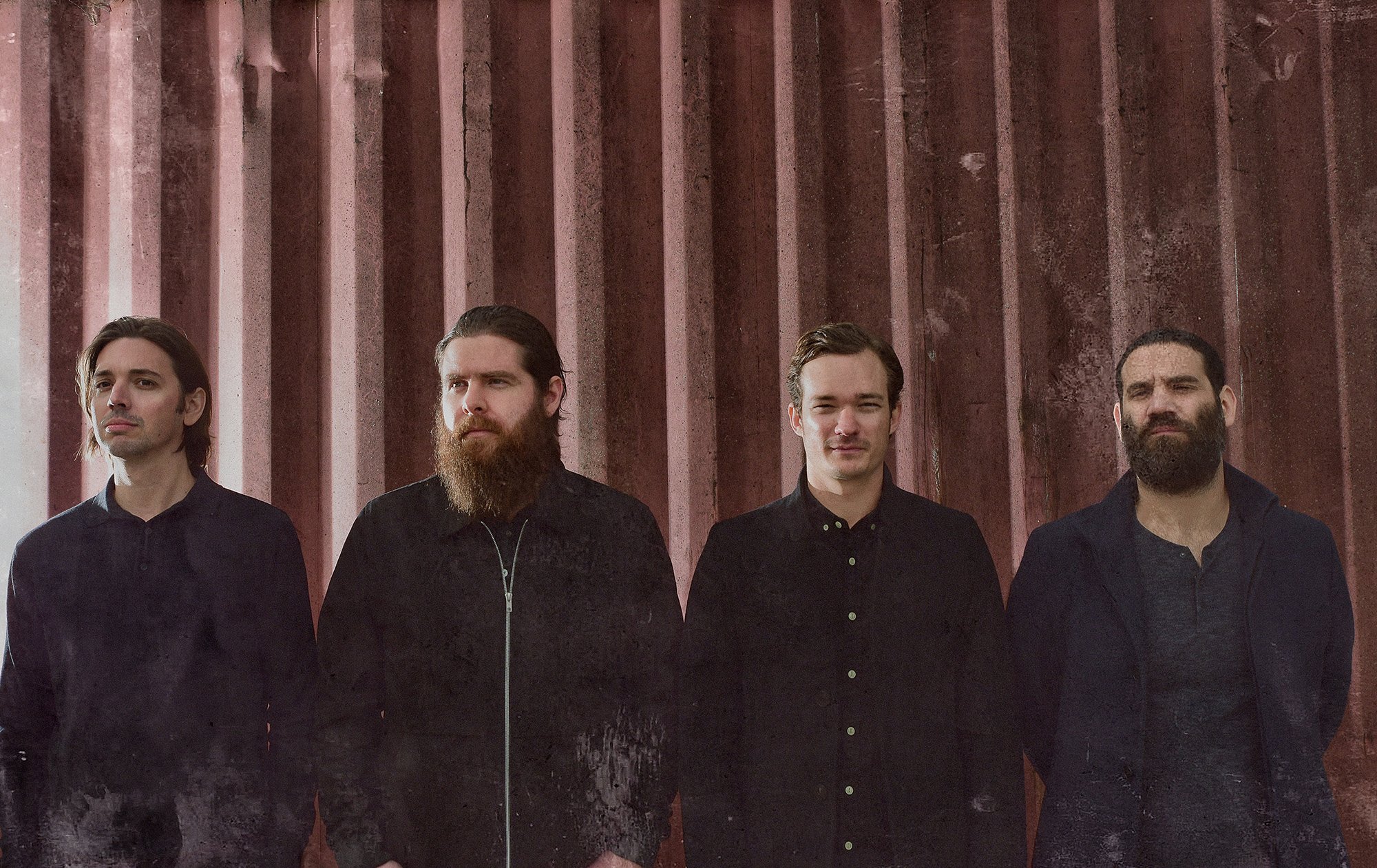The Breakdown

Album six; phase two, stage two. If it seemed curious that Manchester Orchestra trailed the impending announcement of The Million Masks of God at a performance that simultaneously capped off its predecessor’s campaign back in February, it was unwarranted. Having pushed themselves in a hard and heavy direction for 2014’s COPE, the Atlanta, Georgia quartet returned in 2017 with ambitious flair on full display, resulting in them breaking through with A Black Mile to the Surface, seen as a creative rebirth of sorts. Led by vocalist and guitarist Andy Hull since 2004, it’s been a delight to see them evolve from the comparatively raw sound of 2006 debut I’m Like a Virgin Losing a Child to going all-in on their most widescreen ideas. A decade on from offering up 2011’s compelling and forward-thinking Simple Math on a label that ‘had no idea what to do with it’, they’re in a much different position; this very much seems like their moment, and they sound as committed as ever.
Black Mile and Million Masks can be seen as two sides of the same coin; in thematic approach and concept, they’re similarly existential. The former was inspired by the birth of Hull’s daughter; and the art of the latter came to imitate life – lead guitarist Robert McDowell’s father passed away from cancer in 2019, as an album about intertwined feelings surrounding death, grief, faith and loss began to take shape, now reshaped by additional, inescapably personal context. It grapples with tough questions in a different way than Hull, McDowell, bassist Andy Prince and drummer Tim Very have approached such things in previous work: a big album with a gargantuan sound, the production overseen by Hull and McDowell, with Catherine Marks back on board along with Ethan Guska.
‘Inaudible’ opens proceedings with multi-part harmonies that suggest an overture of sorts, erupting into full-band splendour as Hull’s distinctive voice soars above everything, with the spotlight shifting from one band member to another as the song gradually unfurls in the manner of a full-bodied waltz. Prince’s bass runs at the song’s peak are a particular highlight, and you’ll notice as the album proceeds that picking out individual moments is a breeze – its widescreen sound is impeccably clear. ‘Angel of Death’ is an early highlight, running to nearly six minutes in length as its moody, bass-driven verses give way to propulsive choruses and a chill-inducing bridge. “I’m alive, but it isn’t the same as before” Hull sings, reflecting on his own changed circumstances as much as he’s speaking for the main character of this concept-driven record: a man on the brink of death reliving scenes from his past.

“There’s a decision we’re faced with when experiencing loss and the inevitable grief that follows. Do we let it sink us?” Hull ponders in the album’s mission statement; real-world tragedy is of course inseparable from the record’s heady concept. Manchester Orchestra have dealt with darkness before, but this feels visceral in its delivery even at its most restrained, as on the incredibly pretty ‘Telepath’, the first sign of relent after a tumultuous Side A, elevated further mid-way through its brief duration by a key change that seems to come from nowhere. It signals a shift into a more grandiose frame of mind that’s expanded upon by the likes of the impressively busy ‘Let It Storm’ and the bruised melancholy of penultimate track ‘Way Back’, which shifts the spotlight back onto Hull’s distinguished vocal delivery. He’s arguably never sounded better than he does on this record, finding his voice in the most literal sense.
Intended as a self-contained listening experience, every song here transitions seamlessly into the next, and lyrical and musical callbacks and cross-references abound: ‘Keel Timing’ and forceful lead single ‘Bed Head’ are built from the same foundations right down to an identical tempo – with Very playing out of his skin on both – while the same musical motif links the bridges of ‘Annie’ and ‘Angel of Death’. If you’re a fan of that sort of self-referential interplay, you’ll find a lot to love in an album that’s loaded with such detail, something that’s borne out in its lush and striking soundscapes that offer up the most filmic take on the band’s sound to date – it’s fitting that they found themselves refreshed after writing the soundtrack to 2016’s Swiss Army Man.
‘The Internet’ brings the curtain down on this 46-minute journey, another addition to the band’s catalogue of great closers, constructed around a cathartic build-and-release mechanic that provides a satisfying payoff, its melodies left to linger in the mind as it fades into the ether. The Million Masks of God is a weighty and complex offering that may seem to play out like an album of two distinct halves on first listen, but as its watertight sequencing would suggest, it’s all connected: a sumptuous offering that is unquestionably their most daring record yet, haunted by the spectre of death yet created by a band who sound more thrillingly alive than ever before. If you thought you knew Manchester Orchestra, think again.














No Comment